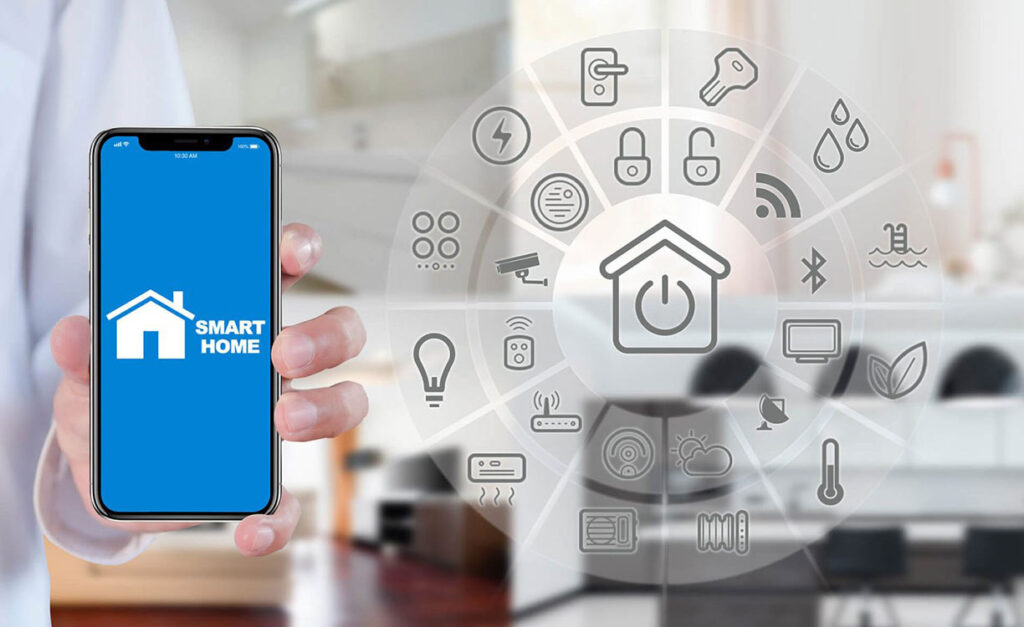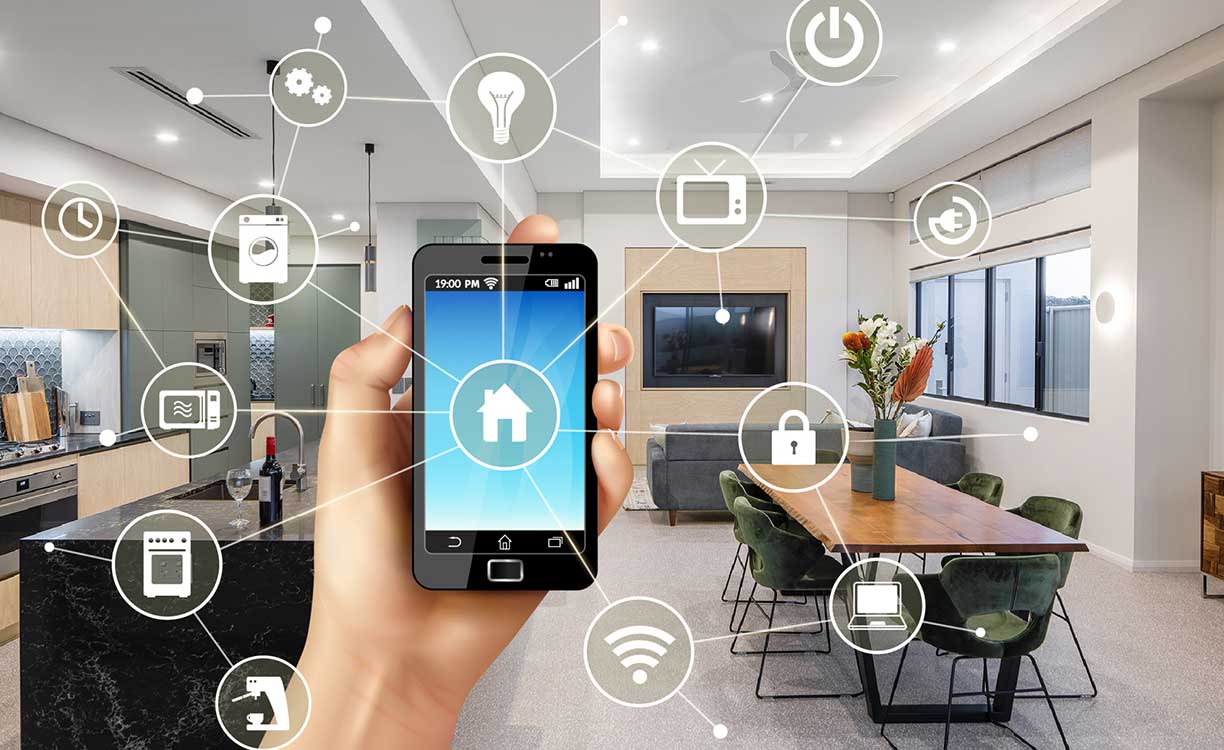Subtotal $0.00
Smart homes have come a long way from voice-controlled lights and robot vacuums. In 2025, your home will ben’t just bright; it will be intelligent, adaptive, energy-efficient, and deeply personalized.
From AI assistants understanding your routines to security systems anticipating threats, let’s dive into how smart home technology in 2025 is reshaping everyday life and what you should buy.
What Makes a Home “Smart” in 2025?
In 2025, a smart home isn’t just a home with gadgets. It’s an integrated system of devices powered by:
- Artificial Intelligence (AI)
- Machine Learning
- IoT (Internet of Things)
- Voice + Gesture Control
- Real-Time Data Syncing Across Devices
Today’s smart home is context-aware, meaning it learns your behavior and adjusts accordingly. For example, lights dim automatically when you watch Netflix, the AC turns off when windows open, and the door unlocks when it recognizes your face.
AI Is the New Brain of Your Home
In 2025, the central “brain” of the home will not be Alexa or Google Assistant but AI engines like Amazon Astro+, Apple Home Intelligence, and Samsung SmartThings AI Core.
These systems:
- Learn your routines and preferences
- Understand contextual commands (“make the house cozy”)
- Adjust lighting, temperature, and mood based on calendar, weather, and mood detection
“Your home now knows when you’re stressed and plays relaxing music without being asked.”

Top Smart Home Devices of 2025
1. Smart Mirrors with Health Monitoring
Think bright bathroom mirrors that:
- Track your heart rate, sleep quality, and hydration
- Recommend skincare or supplements
- Sync with your smartwatch or health apps
Popular in 2025: Google Nest Mirror, Samsung WellnessView
2. AI-Powered Home Security Systems
Modern systems don’t just detect motion — they predict and prevent. Using facial recognition, real-time behavior analysis, and smart locks, they provide:
- Instant alerts
- Voice deterrents
- Police sync-in-one-tap
Worth buying for peace of mind.
3. Smart Fridges That Plan Your Meals
Yes, your fridge in 2025 will:
- Scan what’s inside
- Recommend recipes
- Order groceries automatically
- Alert you on expiry dates
No more spoiled veggies.
4. Climate-Smart Thermostats
Devices like the Ecobee Vision AI and Nest UltraSense use sensors to:
- Learn your comfort zones
- Adjust to weather patterns
- Save energy with predictive control
Eco-tip: Save up to 40% on energy bills.
5. Voice + Gesture Controlled Lights
Forget switches. Lights now respond to:
- Voice commands
- Hand waves
- Mood detection via smartwatches
Philips Hue AI and LIFX Ultra are leading this change.
6. Robot Assistants & Cleaners
The 2025 versions of Roomba and robot assistants are now:
- AI-trained to clean more efficiently
- Able to carry groceries or fetch water
- Voice-aware and emotionally responsive
“Astro, bring me a glass of water” — actually works.
New Trends Shaping Smart Homes in 2025
1. Interoperability Across Brands
Thanks to Matter Protocol, devices from Apple, Amazon, Google, and Samsung now work together — finally! No more siloed ecosystems.
2. Predictive Automation
Your home now anticipates:
- When to heat water for your morning shower
- When to preheat the oven based on your grocery delivery
- When to dim lights based on your calendar
3. Energy-Efficient Smart Homes
Solar roofs, AI-powered HVACs, and smart plugs are helping users cut down energy consumption and get real-time carbon footprint stats.
4. Privacy-Focused Smart Devices
In response to surveillance concerns, 2025 devices now offer:
- Local data storage
- Transparent data control
- Voice data deletion with a command
“Delete everything from today” — and it listens.
Are Smart Homes Worth the Investment in 2025?
Short answer: Yes — but with strategy.
While you can spend thousands on gadgets, focus first on:
- A solid smart hub (Apple HomePod, Amazon Echo Astro+)
- Security + climate control
- A few AI-enhanced appliances
Once your ecosystem is in place, scale gradually.
Expert Tips Before You Buy
- Check Matter Compatibility before buying any device
- Secure your home network — use a modern mesh Wi-Fi system
- Use centralized apps to reduce clutter and confusion
- Don’t over-automate — manual control is still important
- Look for energy rebates on eco-smart devices
Final Thoughts
Smart homes in 2025 aren’t just extraordinary, they’re convenient, efficient, and surprisingly intuitive. Whether building from scratch or upgrading an existing space, the right blend of automation and personalization can redefine how you live.
From waking up gently with ambient lights to securing your home with AI, the future is not only smart, it’s sensitive, adaptive, and eco-conscious.
Stay tuned to Geeksandinfo.com for the latest tech breakdowns that help you make smarter choices.












